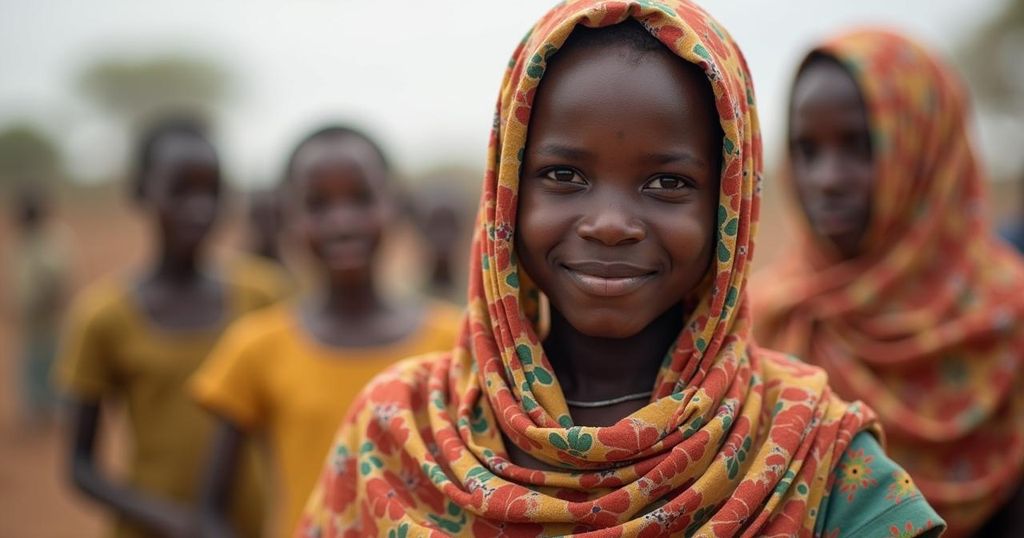Severe Starvation Crisis in War-Torn Sudan: A Call for Urgent Global Attention

In Sudan, widespread starvation has emerged amidst escalating conflict, with the WHO reporting approximately 25 million individuals in need of assistance. Director-General Dr. Tedros Adhanom Ghebreyesus highlighted alarming rates of displacement and malnutrition, calling for greater global attention to the crisis, which he attributes, in part, to racial disparities in humanitarian responses.
Starvation is prevalent throughout war-ravaged Sudan, with the World Health Organization (WHO) reporting dire circumstances following recent assessments in the region. Dr. Tedros Adhanom Ghebreyesus, Director-General of WHO, conveyed the severity of the situation to the BBC, labeling it as “very alarming” due to massive displacement, which has reached unprecedented levels, affecting approximately 12 million individuals.\n\nDr. Tedros emphasized that the global attention directed towards Sudan is disproportionately low, suggesting that racial considerations play a role in this lack of engagement from the international community. The ongoing civil war, which erupted in April 2023 between the Sudanese Army and the paramilitary Rapid Support Forces, has resulted in thousands of fatalities and has exacerbated the humanitarian crisis. He vividly illustrated the harrowing conditions witnessed during his visit to a camp for internally displaced persons and a local hospital, stating, “You see there many children skin and bone, emaciated.”\n\nWith nearly 25 million people, which constitutes half of Sudan’s population, in need of urgent humanitarian assistance, Dr. Tedros lamented the insufficient media coverage of the region’s plight. He further drew attention to the disparity in global responses to humanitarian crises, remarking that the attention afforded to recent conflicts in Africa appears significantly lower than that given to other global emergencies, such as the situations in Ukraine and Tigray.\n\nThe impact of continued conflict, with roots in a 2021 coup by General Abdel Fattah al-Burhan and RSF leader Mohamed Hamdan Dagalo, has led to severe conditions in various regions, notably in Darfur. Recent declarations from a UN-backed committee of experts indicate famine conditions affecting around 500,000 displaced individuals near el-Fasher. Multiple mediation attempts spearheaded by Saudi Arabia and the United States have, regrettably, failed to resolve this ongoing crisis.
The humanitarian crisis in Sudan has escalated significantly due to the ongoing civil conflict that began in April 2023. This war has spurred extensive displacement and a dramatic increase in the number of people requiring emergency assistance. The sudden eruption of violence between the Sudanese Army and the Rapid Support Forces has compounded existing vulnerabilities, leading to severe food shortages and heightened health risks. Amid this chaos, the international community’s response has drawn criticism for its perceived inequity and neglect, particularly in the context of racial biases affecting global attention and aid distribution. The historical context of Sudan’s governance and the geopolitical dynamics involving foreign support further complicate the resolution of this crisis.
In conclusion, the current humanitarian situation in Sudan is one of grave concern, with widespread starvation affecting millions of individuals. The testimony of Dr. Tedros Adhanom Ghebreyesus highlights the critical need for enhanced global awareness and action regarding the plight of Sudanese citizens. The ongoing civil conflict, coupled with the apparent neglect by the international community, underscores an urgent call for both immediate humanitarian assistance and a concerted effort to address the underlying causes of the crisis.
Original Source: www.bbc.com








